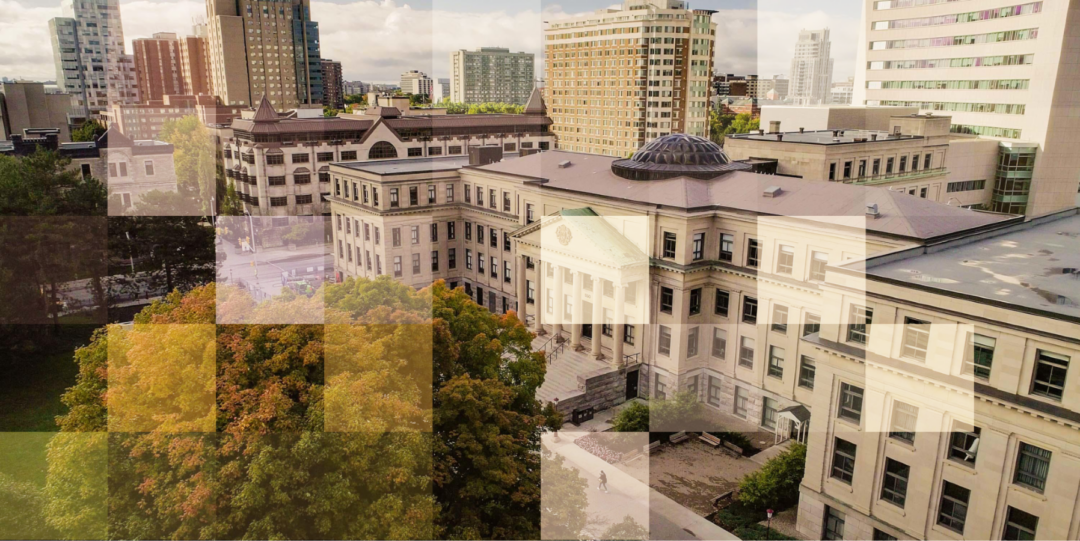Article original le 31 mai 2023
La GRC se prépare à offrir des services de protection rapprochée aux ministres fédéraux de haut rang et aux fonctionnaires en réponse à la menace croissante de violence politique, indiquent des sources.
Les nouvelles unités de la GRC devraient pouvoir assurer la protection d'un maximum de 10 ministres ou hauts fonctionnaires à la fois, selon des informations obtenues par CBC News et Radio-Canada.
Ces nouvelles unités de protection seront attribuées au cas par cas aux ministres ou aux fonctionnaires en fonction des évaluations des risques menées par la GRC.
Alors que les ministres réclament depuis des années davantage de services de protection, la décision du gouvernement d'inclure les hauts fonctionnaires parmi les personnes protégées par la GRC témoigne d'un niveau d'inquiétude croissant à Ottawa face à la menace de violence politique.
- Le SCRS est officiellement chargé de partager davantage d'informations avec les parlementaires menacés (nouvelle fenêtre)
- Les partis politiques doivent rendre publics les lieux de leurs activités de financement malgré les préoccupations en matière de sécurité : Élections Canada (nouvelle fenêtre)
- Le Canada est en train de s’emparer du virus de la radicalisation politique aux États-Unis, selon un nouveau rapport (nouvelle fenêtre)
L’environnement des menaces continue d’évoluer,
a déclaré l'ancien greffier du Conseil privé, Michael Wernick.
Nous avons constaté, au cours de la pandémie au Canada et dans d'autres pays, que les politiciens, mais aussi les fonctionnaires, peuvent être en danger. Il est donc logique de pouvoir prolonger la protection pendant une certaine période et de s'appuyer sur les évaluations des professionnels de la sécurité et de l'application de la loi.
Des équipes permanentes de la GRC assurent déjà la protection du premier ministre et du gouverneur général. Quelques ministres ont bénéficié de services de protection rapprochée ces dernières années, mais seulement de façon temporaire.
Des sources ont indiqué à CBC/Radio-Canada que le gouvernement envisageait d'accorder des fonds supplémentaires à la GRC pour doubler le nombre d'agents de protection qu'elle emploie. Le dossier a été soumis au Cabinet et se trouve actuellement devant le Conseil du Trésor.
Il n’est pas prévu d’accorder les mêmes services de protection aux députés d’arrière-ban, aux dirigeants de l’opposition ou aux assistants politiques — même si plusieurs d’entre eux ont également été menacés ces dernières années.
Le bureau du chef conservateur Pierre Poilievre n'a pas répondu à une question sur la satisfaction à l'égard des dispositions de sécurité actuelles.
Radio-Canada et CBC News ont accordé la confidentialité aux sources qui n'étaient pas autorisées à parler publiquement de questions de sécurité ou de sujets devant le Cabinet.
Un nombre croissant de menaces
Plusieurs sources ont souligné le nombre croissant de menaces proférées en personne ou en ligne contre des membres du gouvernement ces dernières années.
De nombreuses menaces ont été proférées par des opposants aux restrictions imposées pendant la pandémie de COVID-19. Les sources ont déclaré que d’autres menaces contre des politiciens ou des bureaucrates étaient liées à des questions politiques telles que le contrôle des armes à feu ou le développement des ressources naturelles – et même la controverse chez Hockey Canada. (nouvelle fenêtre)
L'administratrice en chef de la santé publique du Canada, Theresa Tam, et d'autres bureaucrates associés à la réponse du Canada à la pandémie ont reçu de nombreuses menaces de violence.
Plusieurs ministres du cabinet ont également été victimes d'agressions ces dernières années, tant en ligne qu'en personne. En août dernier, une vidéo montrant un homme lançant des blasphèmes à la ministre des Finances Chrystia Freeland et la traitant de traître
Lors d'un événement en Alberta, un débat a été déclenché sur les menaces envers les politiciens.
Plus tôt ce mois-ci, un Ontarien a été condamné à la détention à résidence pour avoir jeté du gravier sur le premier ministre Justin Trudeau lors d’un arrêt de campagne électorale en 2021.
Les sources ont indiqué que de nombreuses menaces contre de hauts fonctionnaires fédéraux n'ont jamais été rendues publiques. Elles ont ajouté que de nombreux ministres et représentants du gouvernement estiment que la GRC ne prend pas suffisamment au sérieux certaines menaces spécifiques.
La GRC, quant à elle, affirme souffrir d'une pénurie d'agents de protection et a dû donner la priorité à ses obligations de sécurité existantes.
Une retraite de trois jours à laquelle Trudeau et son cabinet ont participé en janvier à Hamilton, en Ontario, a amplifié le sentiment de vulnérabilité parmi les ministres du cabinet, ont indiqué des sources.
Un petit groupe de manifestants, mais très bruyant, s'est installé devant l'hôtel qui accueillait la retraite. Après le dîner avec ses ministres, Trudeau a regagné son hôtel à travers la foule de manifestants avec l'aide de son équipe de protection. Mais un certain nombre de ministres sont restés au restaurant parce que la police ne savait pas comment nous sortir de cette situation,
a déclaré une source libérale.
Ce qui m’a frappé, c’est le manque de planification,
a déclaré la source.
Finalement, le groupe de ministres a traversé la foule de manifestants avec l'aide de la police de Hamilton et d'au moins un membre de la GRC. Certains craignaient que la situation ne dégénère, a indiqué la source du parti.
Ils nous ont tous éliminés ensemble… Ça aurait pu être catastrophique,
a déclaré la source.
Les sources ont déclaré l'expérience à Hamilton (nouvelle fenêtre) a convaincu le Cabinet de la nécessité d’élargir les services de protection de la GRC.
L'ancien commissaire adjoint de la GRC, Pierre-Yves Bourduas, a déclaré que la menace de violence politique fait partie d'un nouvelle normalité
au Canada.
La situation ne semble pas s'améliorer et dans ce contexte, la GRC doit s'assurer qu'elle dispose des ressources nécessaires pour relever les nouveaux défis opérationnels,
il a dit.
Richard Fadden, ancien chef du Service canadien du renseignement de sécurité, a souligné une déconnexion entre certaines parties de la population et le gouvernement
comme l’un des facteurs de l’augmentation du nombre de menaces violentes.
Il y a 25 ans, il y avait beaucoup de gens très mécontents. Mais il n'y avait pas de déconnexion et je ne pense pas que la capacité à s'organiser rapidement, à rassembler des protestations... était là.
il a dit.
La Chambre des communes a également adopté des mesures pour mieux protéger les députés participant à des événements dans leurs circonscriptions.
Lors d'une réunion du Bureau de régie interne en décembre, (nouvelle fenêtre) la Chambre a lancé un projet pilote visant à couvrir les frais de sécurité des événements organisés par les députés en dehors de l'enceinte parlementaire.
Le sergent d’armes de la Chambre des communes effectuera des évaluations de sécurité pour déterminer si un tel événement nécessite une sécurité sur place.
Le bureau du leader du gouvernement à la Chambre, Mark Holland, a déclaré à Radio-Canada/CBC que le Parlement a mis en place des mesures pour protéger les députés lorsqu'ils se trouvent à l'extérieur de l'enceinte parlementaire, notamment des évaluations de sécurité et des contacts avec la police locale.
Pour des raisons de sécurité, les informations détaillées sur ces programmes ne sont pas partagées publiquement,
a déclaré le porte-parole du bureau.

